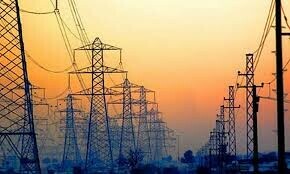In an office of the National Savings Centre in Karachi, a frail old man who had just finished counting the Rs4,600 he had received on his Rs0.5m investment in the ‘regular income certificate’ for October, protested at the 12.3pc annual return he was getting.
The friendly clerk explained that the return was subject to a 10pc withholding tax at source. The man left mumbling to himself.
Small savers have been saddled with the 10pc at-source withholding tax deduction on profit since 2004, courtesy the government of then-Prime Minister Shaukat Aziz.
The elderly, mostly widows and pensioners, receive a slightly higher rate of 14.04pc on ‘Bahbood Savings Certificates’. In the first week of every month, NSS offices are packed with the old and infirm, men and women, waiting for their turn to receive the pittance from which to meet their expenses. As for the government, the National Savings Scheme (NSS) is its biggest source of its non-bank borrowing.
Lack of investment avenues for small savers draws many to NSS. What are their alternatives? Conventional prize bond schemes give no guarantee of a return and have come to become the cheapest source of money laundering for people with ill-gotten wealth.
Some feel safe to keep their money in banks, despite the fact that most banks offer a return of 6pc on the average balance in the customer’s savings account. Banks themselves prefer to commit much of their cash to government papers like Pakistan Investment Bonds, which yield 12pc. They, therefore, earn a good spread and simultaneously deprive depositors of a fair return and starve the private sector of credit for long-term investment in industrial ventures.
By and large, risk-averse small savers prefer National Savings instruments and savings accounts
at banks, both of which offer unsatisfactory returns
Meanwhile, brokers lure small investors to the stock market. “Pakistani stocks returned 50pc in two successive years — 2012 and 2013 — while providing nearly 20pc year-to-date in 2014,” says Zubair Ghulam Hussain, head of equity sales at Foundation Securities. “Where else do you get such fabulous returns?”
Stock broker Aqeel Karim Dhedhi says the drop in the Consumer Price Index to a low of 5.82pc in October against 7.68pc in the same month last year also makes a stronger case for equities.
“It could create room for the State Bank of Pakistan to cut interest rates, which would provide stimulus to corporate profitability, mainly in the leveraged textile, cement and independent power producing sectors, and in turn provide higher dividends to shareholders,” says Dhedhi.
Yet, Nasim Beg, vice chairman of MCB-Arif Habib Investment, points out that small investors are generally risk-averse, as price volatility in the stock market can unnerve even the most steadfast high net worth individuals. Besides, it is difficult for such small savers to forget the previous stock market crashes that left them penniless. However, he believes that small savers who suffered through previous crises have themselves to blame, as they overplayed on borrowed money.
“Investor education is necessary,” he says, adding that high dividend-yielding stocks could give them a steady income. Small savers with little or no know-how about the equity market could enter through mutual funds, which are managed by professional asset managers.
“Some equity funds have provided 25pc return, on average, in recent months,” says one fund manager. He conceded that Islamic mutual funds have also started to grow, and now account for nearly 20pc of the overall mutual fund industry.
On the other hand, gold has appealed to most small investors as a safe haven over the years, while some others have relied on the speculative nature of its returns. But after soaring 15 times in almost as many years, bullion prices have dipped to four-year lows; the metal was trading at Rs46,400 per tola last week.
Similar is the case with the currency market, as the fast fluctuating rate of the rupee against the dollar and other currencies has spooked investors. Meanwhile, people are jumping into the real estate market. Single-family houses in Karachi have seen a price leap of nearly 40pc in the past few years, taking them away from the reach of people with lesser means.
A conventional avenue of investment for people with small capital used to be rental income derived from property, mainly apartments or shops. But the scare of ‘land grabbers,’ as well as the general tilt of the law in favour of tenants, dissuades investors from purchasing property to put on rent.
Beg laments the country’s low savings rate, considered by economists to be one of the lowest in the world. The Economic Survey of Pakistan 2013-14 lends credence to that assertion, as national savings were recorded at 12.9pc of GDP that year, down from 13.5pc in the earlier year.
Similarly, domestic savings receded to 7.5pc of GDP in 2013-14, from 8.3pc a year ago. Beg advocates ‘mandatory savings towards retirement’ to raise the level of savings and offer cover to people who are earlier driven to consumption, only to regret it when they retire with little to no money in their twilight years.
Published in Dawn, Economic & Business, November 10th, 2014












































